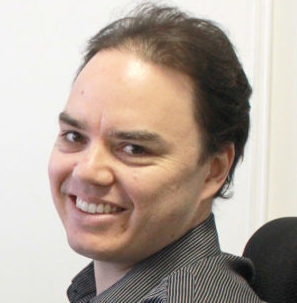Visiting Scholar Discusses how to Talk Science With Skeptics
February 16, 2017
 John Cook
John Cook
It's the 11th time your Facebook friend has posted the same debunked fact about climate change on his wall. Suggestions that the information is fabricated only cause him to dig his heels in even more.
It could be your uncle or your coworker, so you can't unfriend him. How do you communicate with him about these issues?
That touchy topic will be tackled by John Cook of George Mason University, who will deliver a talk, "Responding to Alternative Facts in a Post-Truth World," as part of the ODU Resilience Collaborative spring seminar series.
Cook, research assistant professor at the Center for Climate Change Communication at George Mason, will speak Monday, Feb. 20 at 3:30 p.m. in the conference center of Innovation Research Park Building II, 4211 Monarch Way. An informal session with Cook for ODU Resilience Collaborative faculty members will start at 1:30 p.m. in the same location.
His talk will focus on how scientists can respond to the public's declining reliance on scientific evidence and the increased influence of "fake news."
Cook will examine the psychological research into science denial - why and how some people reject science and how might we respond.
Cook founded Skeptical Science, a website that won the 2011 Australian Museum Eureka Prize for the Advancement of Climate Change Knowledge and 2016 Friend of the Planet Award from the National Center for Science Education.
He co-wrote the college textbook "Climate Change: Examining the Facts" with Weber State University professor Daniel Bedford.
In 2013, Cook published a paper analyzing the scientific consensus on climate change, supported by then-President Obama and British Prime Minister David Cameron. In 2015, he developed a massive open online course at the University of Queensland on climate science denial, which has logged more than 25,000 enrollments.
The ODU Resilience Collaborative is a consortium of leading scholars actively engaged in research, education and outreach on critical issues for resilience at the community, regional, national and global levels. It evolved from ODU's Climate Change and Sea Level Rise Initiative, founded in 2010 by University President John R. Broderick. Its creation was intended to expand the University's first foray into coordinated climate change and sea level rise research.
Through the Resilience Collaborative, faculty members look for opportunities to combine their experience and expertise with that of colleagues from across the University. The goal is to launch joint research projects and academic programs to address one of the region's great challenges in new ways, seeking innovative solutions.

